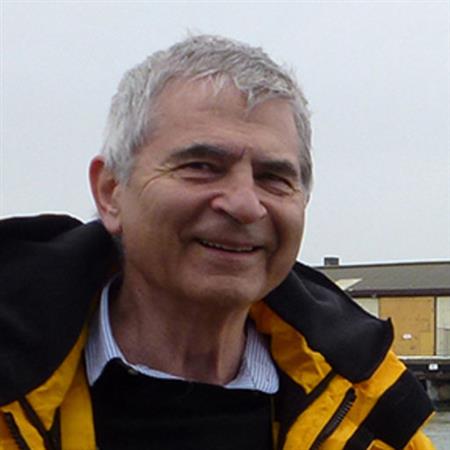
Professor Jorg lmberger invites you to attend a zoom presentation to a Rotary Club in Malta on the 28th of May at 23:00 Perth time (16:00 UK time). Please email Anne Marie Bianchi (annemariebianchi@gmail.com) the talk organiser in Malta and she will send you instructions on how to join the meeting.
Zoom Seminar Thursday 23:00 Perth, Western Australian TimeTitle: Climate Change: How to Kill The Devil!
by Jörg ImbergerAbstract: Global warming has been elevated to a religious icon of a devil. This allows us to blame all and sundry on the devil, feel righteous and do nothing useful. Billions of dollars are being spent annually on the so called global warming problem, politicians are carrying on about it endlessly, spending tax payer’s money, based on their uneducated understanding of the problem. Industry is exploiting the emotional aspects for the benefit of their shareholders and scientists are playing with large numerical simulations, of dubious usefulness, like kids with new toys. It is time to take stock and put into focus the nature of the threat that is real under a business as usual scenario. I will start with explaining why the interglacial periodicity is 100,000 years, a new result that seems to have escaped attention. This understanding opens the way for a simple quantification of the effect of greenhouse gases and a synthesis of solutions to the, so called, global warming threat. I will then describe my vision of how the threat could be totally eliminated, almost overnight, simply by setting up a global energy grid and reforest places like Western Australia with native forest, the way it was before humans arrived. Western Australia alone has about 20 times the world’s total current energy needs in tidal, solar and geothermal energy. The only question, in my own mind is, whether we have the courage to change course and not just blindly follow our tribal leaders into extinction. Recent research has shown how green space improves human mental well being, so reversing global warming will also help humans to live more happily. I will finish by drawing parallels with what is needed and what motivated the people who started the Rotary Club global network.Introduction to the Speaker: Jorg immigrated to Australia, as a 6 year old boy in 1948 with his parents. Coming from a very pro-German family into the backyard of the former enemy was not easy for a young boy who wanted to fit in. The stress imposed on Jorg as a small child, first immediately after the war and then growing up in Australia formed his character for the rest of his life. This fits the recent research about how the human mind is wired and Jorg, tells us, that he is very grateful to the fellow Australian kids, for forcing him to fit into the new culture. Then in 1963 he met his wife , another free spirit, and the two have had a really enjoyable adventurous life. Growing up in a very poor family and then gaining his wife’s support have formed his character, a person who enjoys helping nature and disadvantaged, above all a person who likes to speak his mind and get response.Jörg received his PhD from UCB at 28 years of age and became Australia’s youngest full professor at 35. His research interest are in environmental engineering as applied to rivers, lakes, estuaries and coastal seas and how to sustaining functionality of these aquatic systems in a changing world. His most recent interests include how to teach people to adjust their behaviour and recognise that Nature can no longer automatically heal the damage we impose on it. He is a Fellow of 10 International Academies and the recipient of 30 major honours including the Onassis International Prize, the Stockholm Water Prize and Member of the Order of Australia. He has published 5 books, with two in preparation, contributed to 19 books and has published 275 journals papers. Google Scholar credits him with 22,482 citations and an h-Index of 68. His projects have taken him to more than 40 countries, including 6 major projects in Italy: Understanding the water quality implications of the Moses Gates, Exchange processes in Lake Como, Saving a lake’s ecology from extinction, Lake Iseo, Managing the clam ecology in Barbamarco Lagoon, Managing the water quality in Lago di Fiastra and Investigating the human impact on the Adriatic Sea. He has also taught course at Padova University, Politecnico di Milano and the University of Catania. Currently he is an Honorary Professor at the University College, London, Visiting professor at the University of Venice and Adjunct Professor at the University of Miami.